Shameless Curiosity
Dearest reader!

I assume that, since you have found this humble blog of mine, you may be interested, or already have, in enrolling in the UBC Trek program? If that is not the case, as you continue to read what I am about to tell you, I hope that you might change your mind.
What does it mean to volunteer? Does the act of deliberately giving up your precious and limited time for no recompensation ultimately make you a greater and happier individual? This is largely the impression put forward in the public discourse. The volunteer is given a saint-status and delicately portrayed as the Angel on earth there to save those in need. You think I am exaggerating? Well, maybe I am, but let me ask you something. Think about the last time you met someone and they told you about a volunteer placement of theirs. What was your initial reaction? That they is a good person. Exactly. That being said, being a volunteer does require some characteristics I believe to be of utter importance and value, not in terms of having these characteristic, but learning them.
It is predominately the “idea” of volunteering that is so highly acclaimed and not necessarily the volunteering in itself. If you allow yourself to think about it, why is it that we have a system of volunteers in the first place? Is it really merely as a way to help vulnerable communities? The motive behind this blog is to debunk this myth of volunteering as honorable quest to save to ones in need and to hopefully contribute to a changed public discourse around this topic.The TREK program offered at UBC does a good job doing that. Instead of understanding volunteer work as a static act of benevolence and helping of those in need, the TREK program views volunteering as part of a multi-disciplinary approach to academic knowledge and a tool to comprehend the contemporary world. I strongly believe that by altering the view of exposing yourself to a social context different from your own, one has the potential to influence individuals’ thoughts and actions using knowledge to promote awareness. Through the following blog posts, I will address two lessons I learned by attending the Trek Program as I first year International UBC Student. As cliché as it may be, I believe that only through someone’s stories one can acquire a more realistic glimpse of an understanding of a particular experience.
What is TREK and How did I get involved?
As an international first-year student originally from Sweden I am pursuing a Coordinated Arts Program in the Global Citizen stream at UBC. This is a first-year academic program that offers and combines several Arts courses in areas such as Politics, Sociology, and Geography with the aim to explore our role as individuals in an increasingly globalized world. It was through my sociology course SOCI 100, that my Professor Kerry Greer, first introduced me to the TREK program as a practical alternative option to the usual weekly discussion groups with theoretical and research-based assignments.
The TREK program is a one-year program offered through UBC’s Center for Community-based Learning that places students in community settings (non-profits organizations and inner city schools). In order to participate in TREK specifically, you must complete and submit an official online application in the beginning of the school year. Once enrolled in the program you must complete three assignments throughout the year and attend three Community Dinners with the other TREK participants.
Having previously done quite a bit of volunteering as a high-school student, I felt on a personal level the need to challenge my experience of Vancouver and to understand what it really meant to live in this Canadian city. Although being there for those in need is an important factor, that was never the core of my ambition to participate in the program. I wanted to learn and get to know this new community that I had arrived to. At first, I was ambivalent towards participating. I was scared that it would require more of me than I would willing to provide, that it would drain me of energy and be too overwhelming. What finally made me change my mind and apply was purely my curiousness. I was curious to experience my surroundings, and I think that you should be as well!
Lesson 1: The Bus Ride
Imagine it is your very first day at your new Trek placement: The Downtown Eastside Neighbourhood House (DTES NH). You are on the bus and as it crosses the bridge over Grandville and enters Downtown, you become aware of this sucking sensation present in your upper stomach. In your head, you casually try to blame it on the spicy Indian you had for lunch, although both your head and your stomach know: You are dead nervous.
I can clearly recall this moment when I think back to my experience working for the DTES NH, how uncomfortable and unsure I felt about my new responsibility. Oh, how different my feelings were sitting on that same bus going to my last day in comparison.
One aspect of the volunteering experience that is often neglected is the experience you have outside of the actual volunteering itself. It is almost like having children. Everyone will tell you about all the emotions that you may experience when you are spending time with your child, how you should take care of it, what you should do etc. What they do not tell you, however, is how having child will make you feel when you are not with it. They won’t tell you about the guilt and feeling of not being good enough, about the stress of just not being able to be there when you are needed. I believe that the volunteer experience is to some extent a similar experience. Just like when you become a parent, being a volunteer requires you to take on a new role and responsibility in addition to your previous ones. This additional responsibility, however, has a tendency to sometimes clash with other aspects of your life and balancing the two different worlds are not always easy. The “idea” of being a volunteer comes alongside many external expectations about how you are supposed to act and feel in order to be a “good” volunteer. The truth is, being a “good” volunteer as relative to the organization you are volunteering for and it takes some time to become comfortable in your new role.
My one-hour bus ride back and forth to my volunteer placement was where this realization first came to me. It was while sitting on the bus 14 going to my volunteer placement that I experienced the anxieties about leaving a pile of homework at UBC and feeling guilty about feeling like I did not have time for volunteering. It was also on bus 14 coming back from my volunteer placement that I experienced gratefulness for the people that I slowly began to build relationships with. On that bus ride, I could identify how my role as a volunteer at the Downtown Eastside Neighbourhood House gradually grew on me, how I slowly felt like I knew how to be a “good” volunteer. All I needed was just a little time in order to fully enjoy the ride.

Lesson 2: The Baby
Another lesson that I learned working with the DTES NH was how to connect with the people I was working with. As a volunteer there I participated in a Family Drop-in program, which consisted of drop-in sessions that include four main activities that the families in the DTES can participate in; an arts and craft table, collectively preparing snacks and dinner, an interactive play and build area and eating the prepared meal together. Many of the families consistently participate every week and are undeniably the most essential aspect of my work there.
In the beginning, I had a hard time connecting with the families. I simply could not seem to identify how to approach them in my position as a volunteer. It was strange, I felt like I was an outsider in their social setting. Like they all were speaking a language fluently that I had just begun to learn. The parents and the children all were used to the structure and routine of the program, and they all knew each other from before. I, on the other hand, mostly had no real idea what would happen next.I had not expected to feel that way. I was the volunteer, right? Was it not me who was supposed to be in charge of the program? I made mistakes all the time, like giving non-halal meat to the Muslim family or constantly asking the wrong questions to the wrong person. During this initial time period, sitting down to have dinner together slightly terrified me. Nevertheless, I had made a conscious decision to eat with the families and do my very best to engage with them, hoping that my feeling of separation would eventually disappear.
It took a long time before if finally paid off. All because of a baby. One of the families had just welcomed a new member into the world. It was a tiny little thing that, unlike many babies, quietly observed the people surrounding. You could see how proud its older siblings were, and especially the oldest who almost never let the baby out of her sight.I had during several weeks been eating dinner with that particular family, and I had been struggling to get the approval from the oldest sister. Everything I would attempt to begin a conversation, she would simply look at me, as she was trying to call my bluff and simply ignored my questions. I had tried everything, but she simply seemed uninterested in becoming my friend. Then one day, she asked if I wanted to hold her sister.
I remember my heart stopping and my hands begin to sweat as I said that I would love to hold the baby. As she placed the baby in my arms, carefully giving me detailed descriptions ensuring that I would hold it properly, the way I viewed my role as volunteer drastically changed. Being the oldest of four, the little soft baby reminded me of holding my younger brother and sister when they were babies. Suddenly, I did not feel distant to the family and as I look up at her sister she smiled at me saying “She is cute, isn’t she”? I smiled back. In that moment I realized that being a volunteer is just as building any type of friendship, it takes time and you simply cannot force it. It will happen when you can meet at the same level. You have to let them decide the pace and direction that the friendship takes, because to a large extent they are the ones in charge of the situation- not you. When I had tried to “control” the situation and be a “good” volunteer by asking questions, I had failed to recognize this essential point. Thus, instead of constantly thinking of yourself as the “volunteer” try to see yourself as just another person sharing the experience and listen to the people surrounding you.


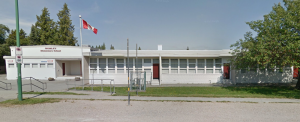 To start off I’ll give you some background information on my placement.
To start off I’ll give you some background information on my placement.
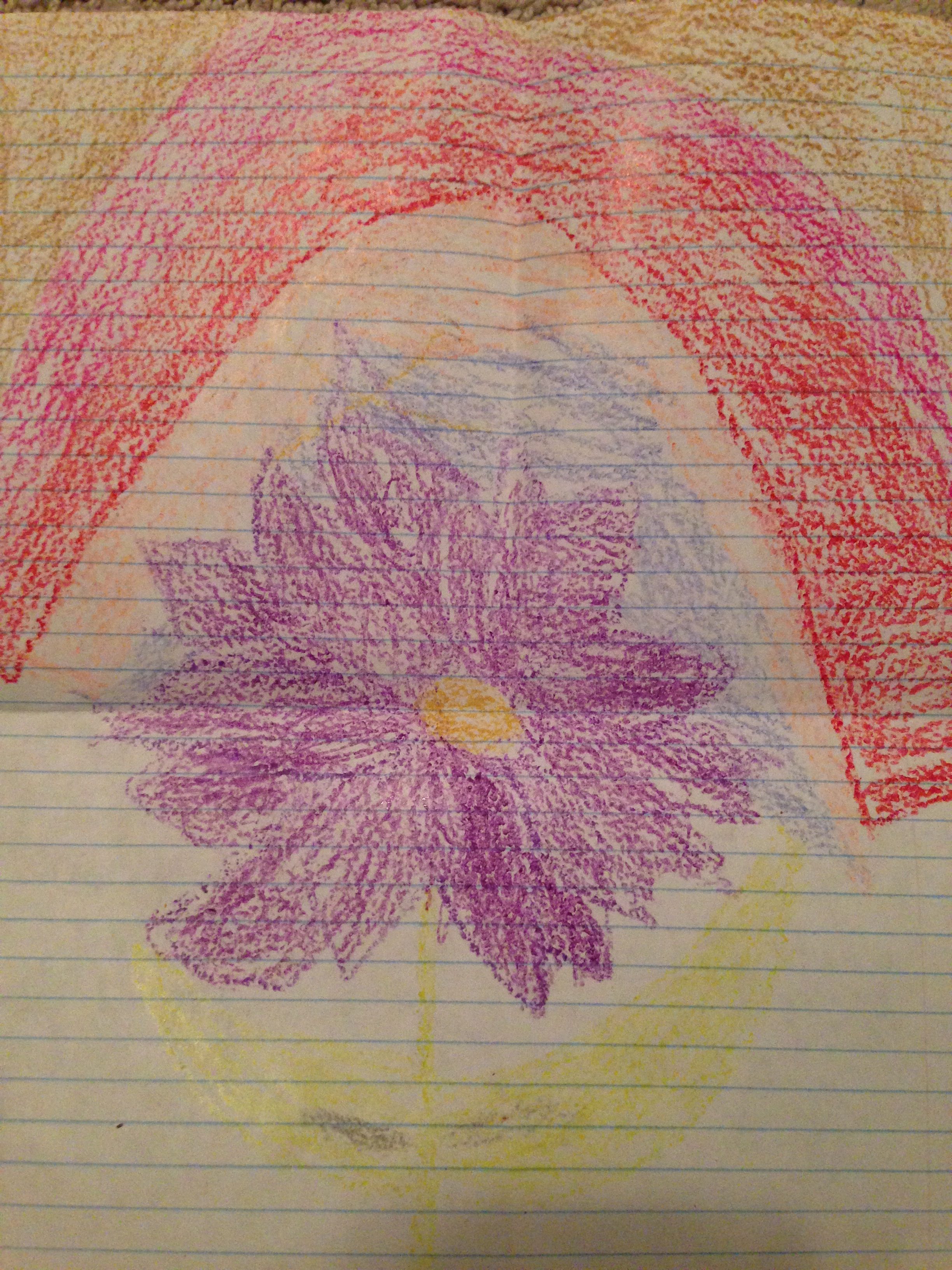
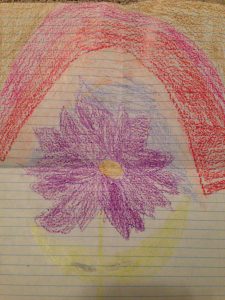
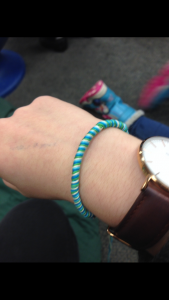
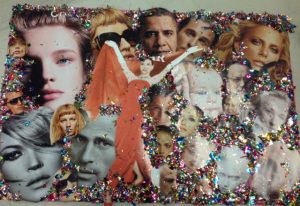
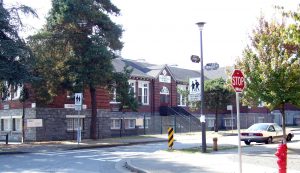
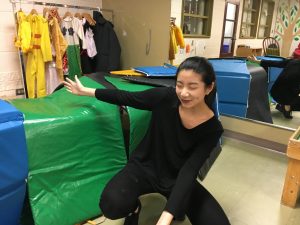




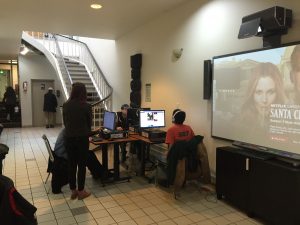 I was working in the dropping-in program. Drop-in program is a program that allow residents of this community to have a access to internet and have a chance to use this new technology. Most of the residents coming to this program are not so good at using computers. So they will run to different problems when they are using computers. We also serve free coffee and tea. It also gives residents a chance to communicate with others. They will chat and read newspaper in this program. This whole program holds in the lobby of UBC Learning Exchange. My job is helping arrange the schedule of using computer and help to clean up cups at the end. At the same time, I also help residents to solve some simple computer problems.
I was working in the dropping-in program. Drop-in program is a program that allow residents of this community to have a access to internet and have a chance to use this new technology. Most of the residents coming to this program are not so good at using computers. So they will run to different problems when they are using computers. We also serve free coffee and tea. It also gives residents a chance to communicate with others. They will chat and read newspaper in this program. This whole program holds in the lobby of UBC Learning Exchange. My job is helping arrange the schedule of using computer and help to clean up cups at the end. At the same time, I also help residents to solve some simple computer problems.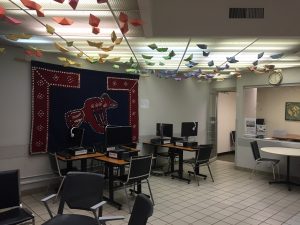 tor suggested him to give up playing guitar at least for a year. Then he answered “If I can’t play the guitar, I would rather broke my arm.” This really touched me. Later I known that he had his own live at a hall in the community.
tor suggested him to give up playing guitar at least for a year. Then he answered “If I can’t play the guitar, I would rather broke my arm.” This really touched me. Later I known that he had his own live at a hall in the community.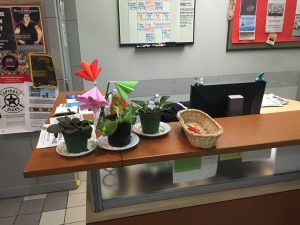 Trek is really a wonderful experience for me. It gives me a chance to get out of that university and get into society. As an international student from China, I had never seen this side of western countries. It is also a good chance for me to know the western society in the round. It helps me to break out of the boring schedule of keeping study. For my first year university life, Trek is really an important part. Through the course I took in the first year, trek program gives me chance to using what I have learned in to real life. And it also help me to understand my sociology class much better.
Trek is really a wonderful experience for me. It gives me a chance to get out of that university and get into society. As an international student from China, I had never seen this side of western countries. It is also a good chance for me to know the western society in the round. It helps me to break out of the boring schedule of keeping study. For my first year university life, Trek is really an important part. Through the course I took in the first year, trek program gives me chance to using what I have learned in to real life. And it also help me to understand my sociology class much better.